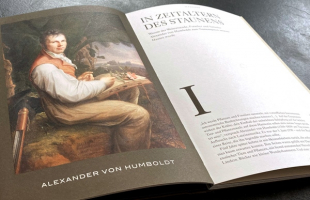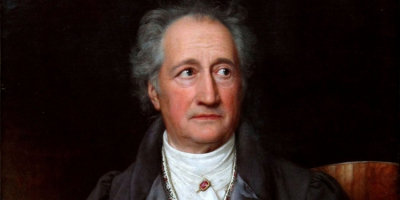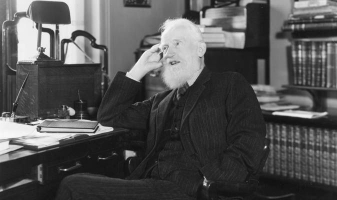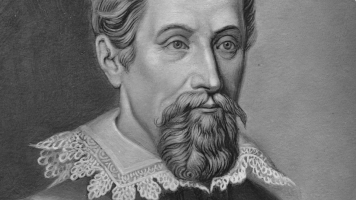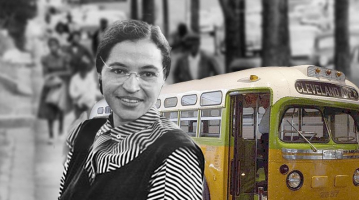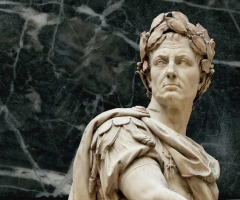Top 8 Interesting Facts about Otto von Bismarck
Otto von Bismarck (1815 – 1898) was the Prussian Prime Minister. He made a great contribution to the unification of Germany. He also helped to maintain peace ... read more...in Europe for more than 20 years as chancellor of the new German Empire. Let's look at the most interesting facts about Otto von Bismarch.
-
Otto von Bismarck was born at Schönhausen, in the Kingdom of Prussia. Ferdinand von Bismarck-Schönhausen, his father, was a Junker squire descended from a Swabian family who eventually relocated in Pomerania as estate proprietors. Ferdinand fit the mold of a Prussian landowner aristocrat. The family's financial situation was modest—farming Ferdinand's abilities were probably below average—and Bismarck did not experience prosperity until after German unification when the rewards began to flow - an interesting fact about Otto von Bismarck.
His mother, Wilhelmine Mencken, was born into a well-educated bourgeois family that included several higher-ranking professors and civil workers. She had married Ferdinand von Bismarck at the age of 16, and she found living in a small town to be limiting. She relocated to Berlin to be with her son Otto when he was seven and enrolled him at Berlin's forward-thinking Plamann Institute.
The young Bismarck regretted giving up a carefree life in the country for one that was more constrained in a big metropolis, where he was competing in school with the sons of the most educated families in Berlin. He attended the school for five years before spending an additional three at the Frederick William gymnasium. In 1832, he took the Abitur, a university admission test.
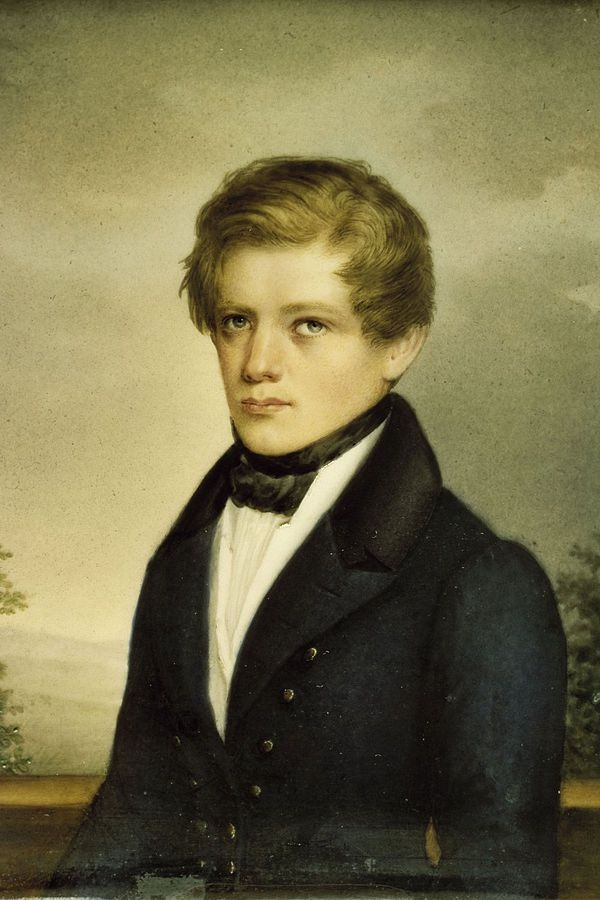
Photo: Time note 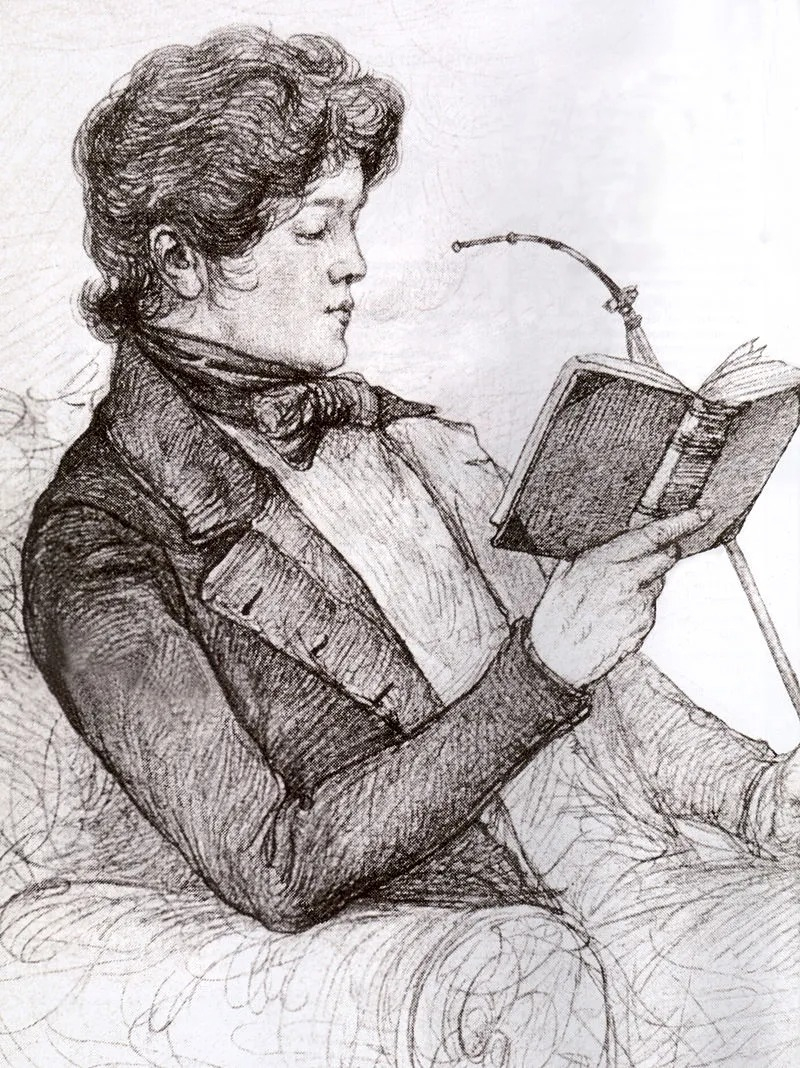
Photo: Militaer wissen -
William I, the new king of Prussia, chose Otto von Bismarck to be his prime minister in 1861. William had been engaged in a conflict with the Chamber of Deputies on military reform for more than two years. The monarch, like former Prussian rulers, thought it well within his power to increase the size of the military and the years of duty because he had spent a large portion of his adult life in the army.
William refused to negotiate or make a deal with liberal legislators over the crucial subject of sovereignty when the liberal majority did not authorize the funding for these measures. Twice, when he prorogued the legislature, the liberal majority grew. The monarch's last effort to avoid legislative control of the military was the appointment of Bismarck.
Bismarck launched a series of three short wars that established Prussia’s dominance. He defeated Denmark in 1864 and took control of the German-speaking region of Schleswig-Holstein. In the Austro-Prussian War of 1866, he conquered the ailing Austrian Empire. When he started the Franco-Prussian War in 1870, he had German support since he didn't demand a war indemnity. After conquering, he annexed the Alsace and Lorraine border regions of France. In 1871, William I received the title of emperor of a united Germany (the Second Reich).
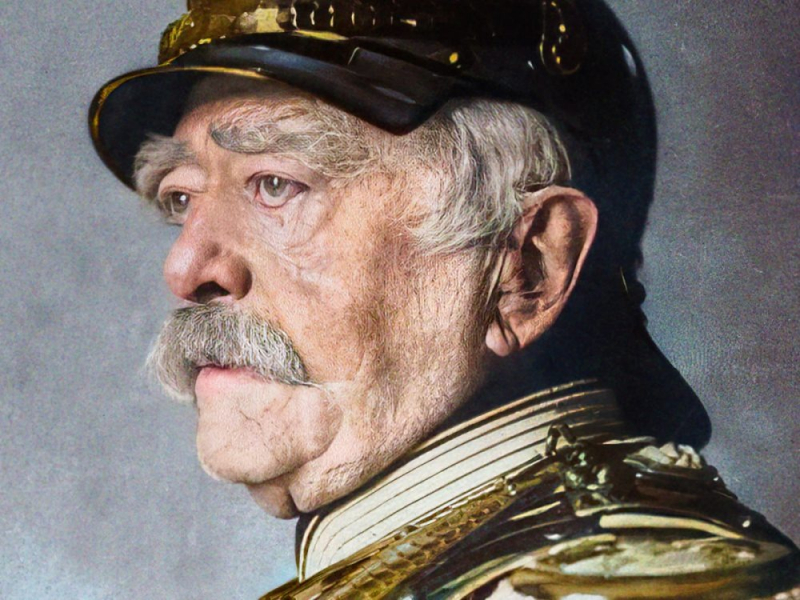
Photo: Marina amaral Source: Biographics -
Otton von Bismarck was motivated to unify ethnic Germans into a single nation governed by an efficient Prussian state. His strategy started in 1864 with efforts to settle the Schleswig-Holstein Question, which began in the realm of diplomacy but came to climax in the war between Prussia and Denmark for control of the Duchies of Schleswig and Holstein. This was the beginning of Bismarck's plan to unite ethnic Germans into a single nation governed by an effective Prussian state.
By pursuing constrained war objectives, ensuring that military policy served diplomatic interests, and remaining non-ideological, Bismarck was able to stop an unchecked escalation to total war. To stop the conflict from escalating further, Bismarck used tactful diplomacy to keep other European governments out of it.
During the Astro-Prussian War in 1866, Bismarck had similar results. Once more, successful diplomacy avoided outside military action. Escalation was prevented by limited war objectives and the absence of ideology. Both Bismarck and Prussia did not believe that such maximalist military goals were required to establish Prussian dominance over the union of German states in the Astro-Hungarian Empire. In the Franco-Prussian War of 1871–1872, Bismarck succeeded in achieving the same outcome. Finally, he united 39 separate nations into one German nation.
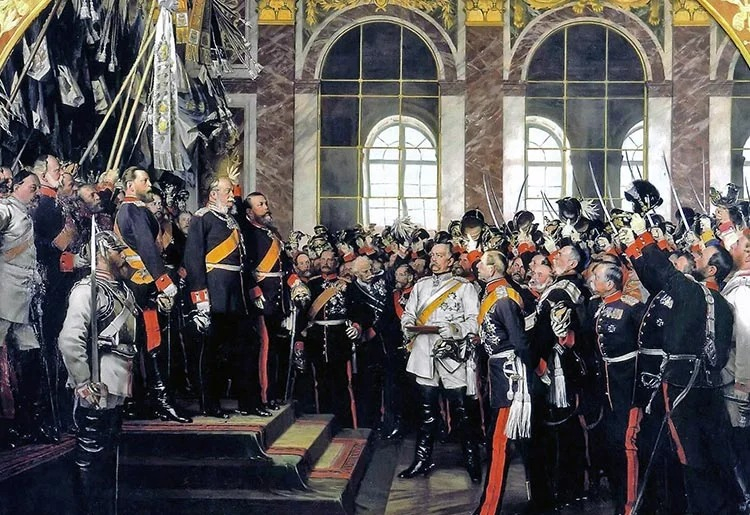
Photo: History Hit Source: Simple History -
One of the most interesting facts about Otto von Bismarck is that he banned Jesuits from Germany. The chancellor was well aware of the fact that more than thirty percent of Germans were Catholic. As a Protestant, like the majority of Prussians, Otto von Bismarck was troubled by the Catholic Church's doctrine of papal infallibility. He started putting policies in place to undermine the Catholic Church's influence because he saw it as a danger. His cultural struggle (Kulturkampf) which lasted from 1871 to 1887, is what led to civil marriage becoming mandatory and religious schools being subject to state inspection.
The Catholic Department of the Prussian Ministry of Culture was abandoned by Bismarck with the help of the anti-clerical National Liberal Party, which had grown to be his main ally in the Reichstag. As a result, the Catholics lost their influence in important circles. The Jesuits were also abolished in Germany in 1872. More anti-Catholic legislation was passed in 1873, which gave the Prussian government control over the clergy's education and limited the Church's authority over discipline. Civil marriages required civil rituals as of 1875. Up until now, religious weddings were legally acknowledged.
The outcry against these actions was immediate and severe, and Bismarck softened his stance a little to garner Catholic support against the Socialists, who had started using Kulturkampf against all religions.
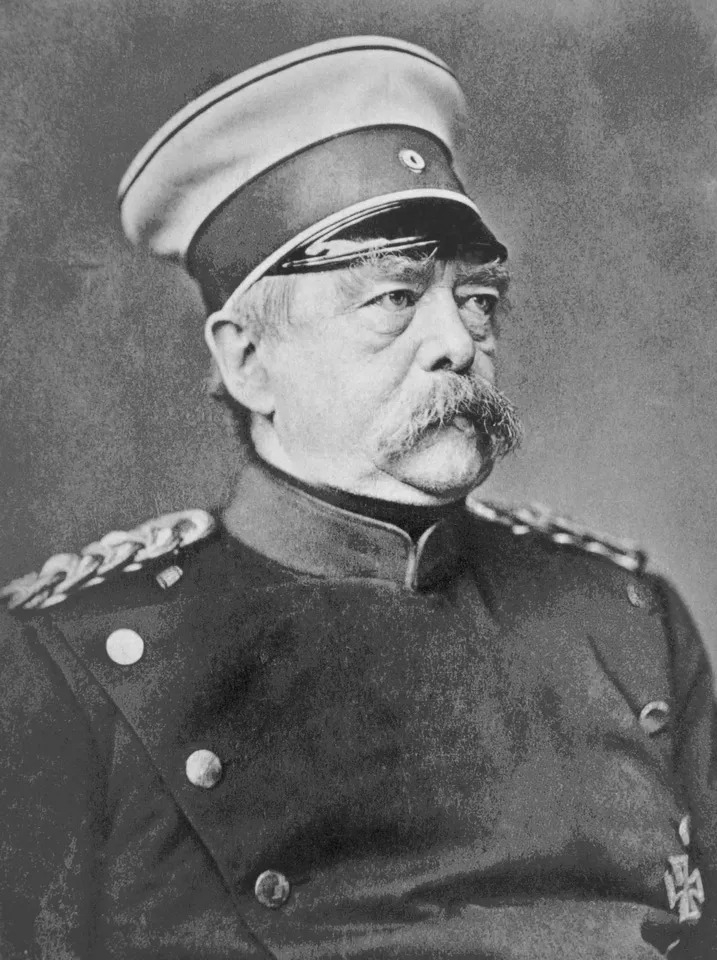
Photo: Britannica 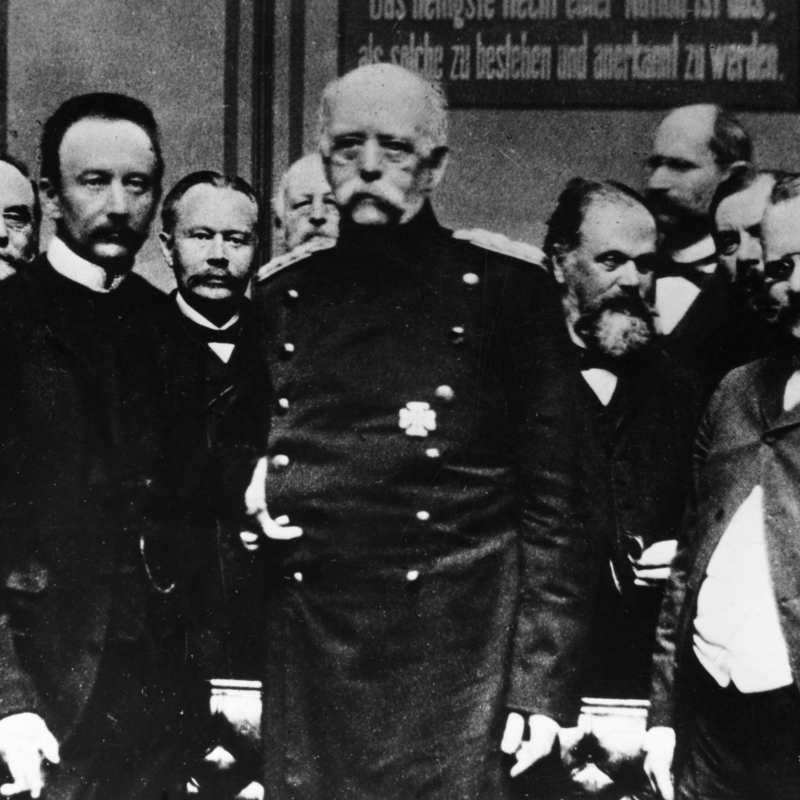
Photo: ThoughtCo -
Although he was a conservative, Otton von Bismarck was above all a strategist. It is Otto von Bismarck who introduced national health care, old-age pensions, and accident insurance to gain the working classes' support away from the Socialists. Otto von Bismarck designed the old-age social insurance program, making Germany the first country in the world to do so - an interesting fact about Otto von Bismarck.
The first modern welfare state in Europe was established by Bismarck in the 1880s by introducing national healthcare (1883), accident insurance (1884), and old-age pensions in order to combat the socialists (1889). The German Chancellor was determined to implement social insurance in Germany with the aim of promoting the well-being of workers in order to keep the German economy operating at maximum efficiency and prevent more radical socialist alternatives. This provided the German people with a complete system of income security based on social insurance principles, along with the workers' compensation program established in 1884 and the sickness insurance passed the year before.
He also organized the Berlin Conference of 1885, which ended the "Scramble for Africa," divided the continent among the European powers, and established German colonies in Cameroon, Togoland, and East and Southwest Africa.
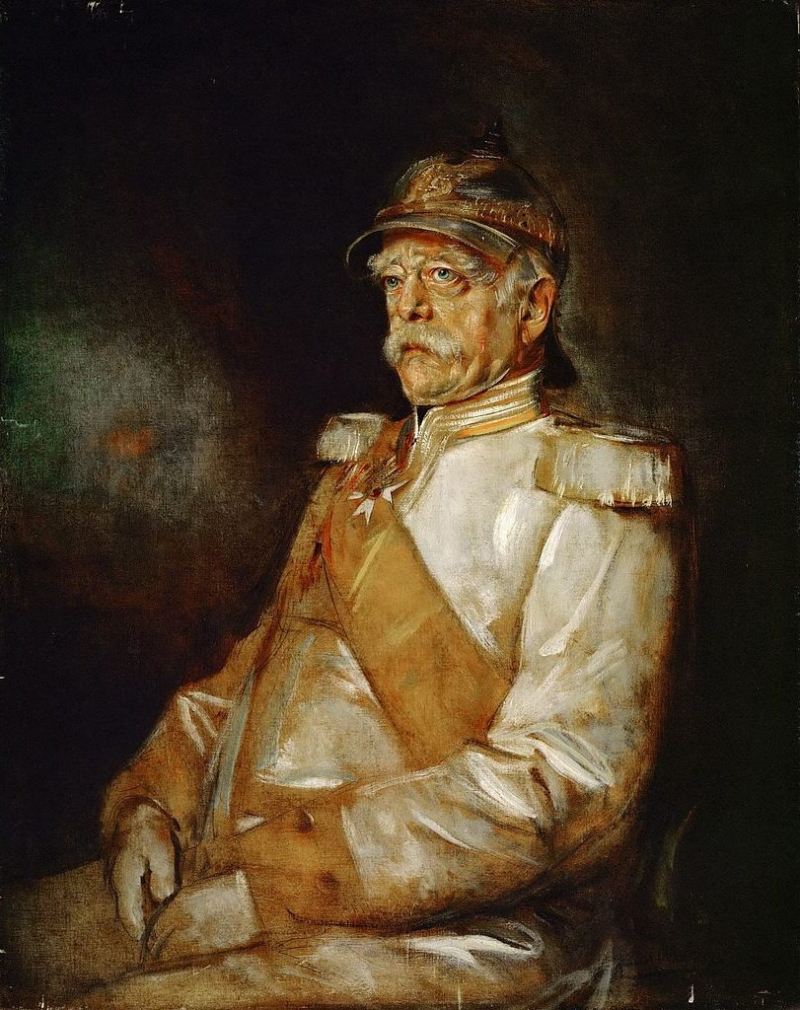
Photo: Freedom & Virtue institute Source: Tooky History -
One of the interesting facts about Otto von Bismarck is that he dislike colonization, and was not willing to build an oversea empire when both the elite and the general public desired it. At first, Bismarck opposed taking part in the colonial race. Because of Germany's geographical location, the chancellor did not place a high importance on developing a robust naval presence, but he believed that it was necessary for the security of colonies.
The concept of creating formal colonies did not appeal to Bismarck because it implied high costs, small earnings, and difficult diplomatic relations. However, the colonial propaganda of authors like Friedrich Fabri (1824-1891) compelled him to confront the problem in the early 1880s.
But three factors over time led to a change of heart. Firstly, colonial possession was a source of pride for German nationalists. Second, as Germany developed as an industrialized nation, it needed raw materials constantly. Thirdly, the German population was expanding so quickly that more land was needed to house people. The Berlin Conference of 1885, which Bismarck organized, effectively put an end to the "scramble for Africa." East and Southwest Africa, Cameroon, and Togoland were acquired by Germany.
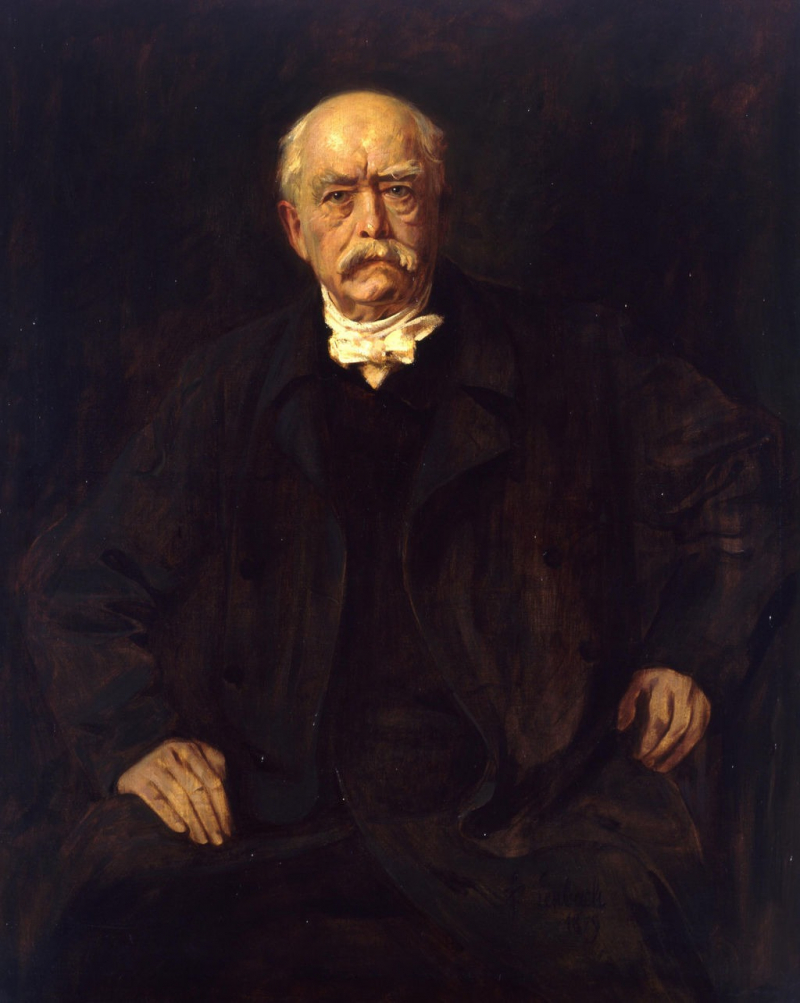
Photo: Wikiquote 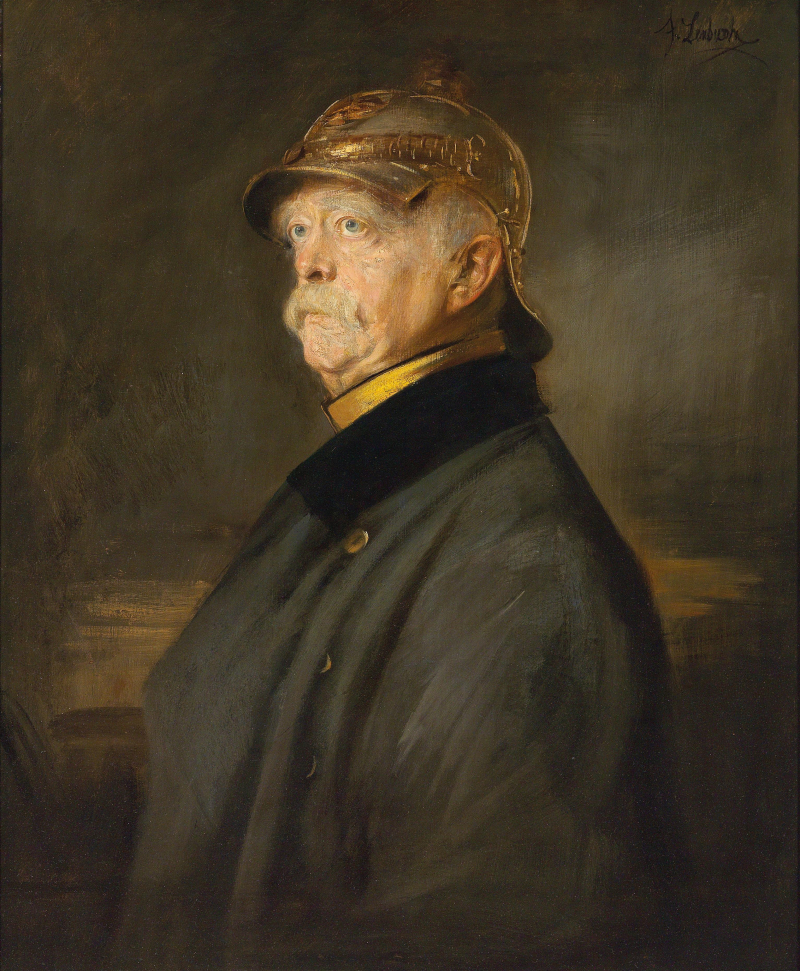
Photo: Wikimedia Commons -
Otto von Bismarck had a ship named after him, which is an interesting fact about him. In August 1940, the Bismarck was commissioned into the Kriegsmarine, Nazi Germany's navy. It was the first battleship built after World War I and the largest battleship Germany had ever created.
It carried more than 41,000 metric tons (40,000 long tons) and reached a top speed of 30 knots (56 km/h; 35 mph) when equipped with a battery of eight 38 cm (15 in) cannons. Bismarck was laid down in July 1936 and completed in September 1940. Although the German naval command intended to use the ship as long-range commerce raiders against British shipping in the Atlantic Ocean, it was built with the traditional function of attacking enemy battleships in home waters in mind. As a result, their design exemplified the strategic illogic that characterized German naval building in the 1930s.
The Bismarck began its first campaign to cut off Britain's supply in the North Atlantic on May 18, 1941. The HMS Hood was sunk in the Denmark Strait on May 24 as a result of an engagement between the Bismarck and two Royal Navy vessels. The Royal Navy pursued the Bismarck in a titanic naval chase until sinking it on May 27 with a combined ship and aircraft attack.
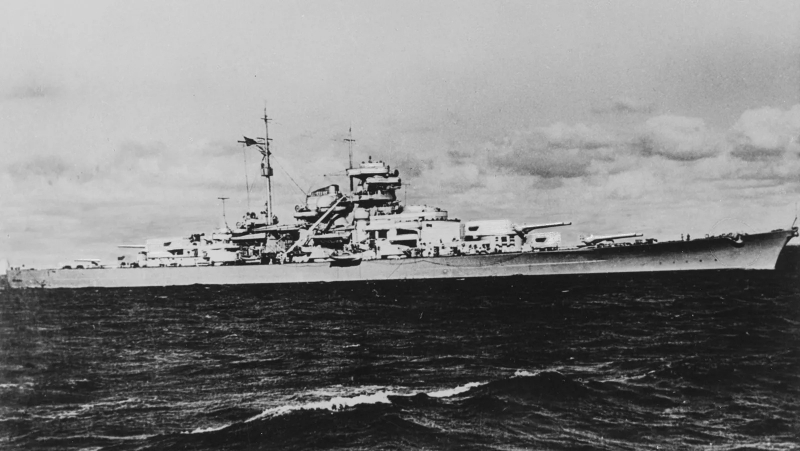
Photo: Britannica 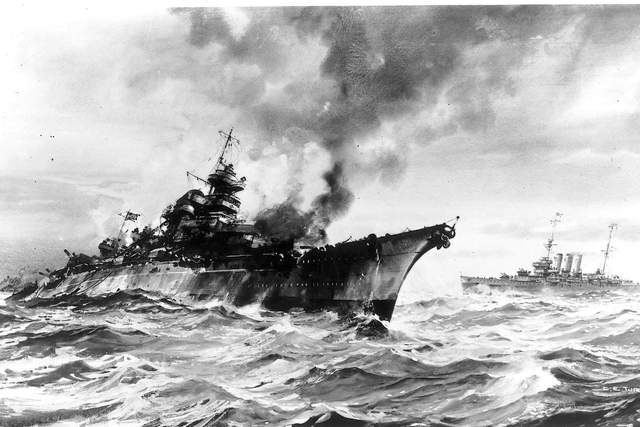
Photo: Postmouth News -
The Bilt tabloid refers to Prinz Carl Eduard von Bismarck, Otto von Bismarck's great-grandson, as the laziest member of parliament in German history in 2007. He has struggled with addiction, and the German media has made fun of his drunken antics. It was said that he didn't show up for any meetings in his area and only half of all legislative sessions. He left the Conservative Christian Party at the request of German Chancellor Angela Merkel in December 2007, one month before he would have been entitled to a pension.
The ex-wife of the heir to a prominent aristocratic family in Europe even filed a lawsuit against him on the grounds that he owes her $2.5 million in back child support payments. Since their divorce in 2011, Count Carl-Eduard von Bismarck was alleged not to have given German Countess Nathalie von Bismarck her monthly payment of $50,000.
Carl Eduard's bad behaviors are reported to have greatly angered the Bismarcks and damaged their status as a noble family. Prince Ferdinand von Bismarck, the great-grandson of the Iron Chancellor, reportedly prefers Carl-younger Eduard's brother, Gregor, to his oldest son as his successor.

Photo: New York Post 
Photo: Rede Piaui










